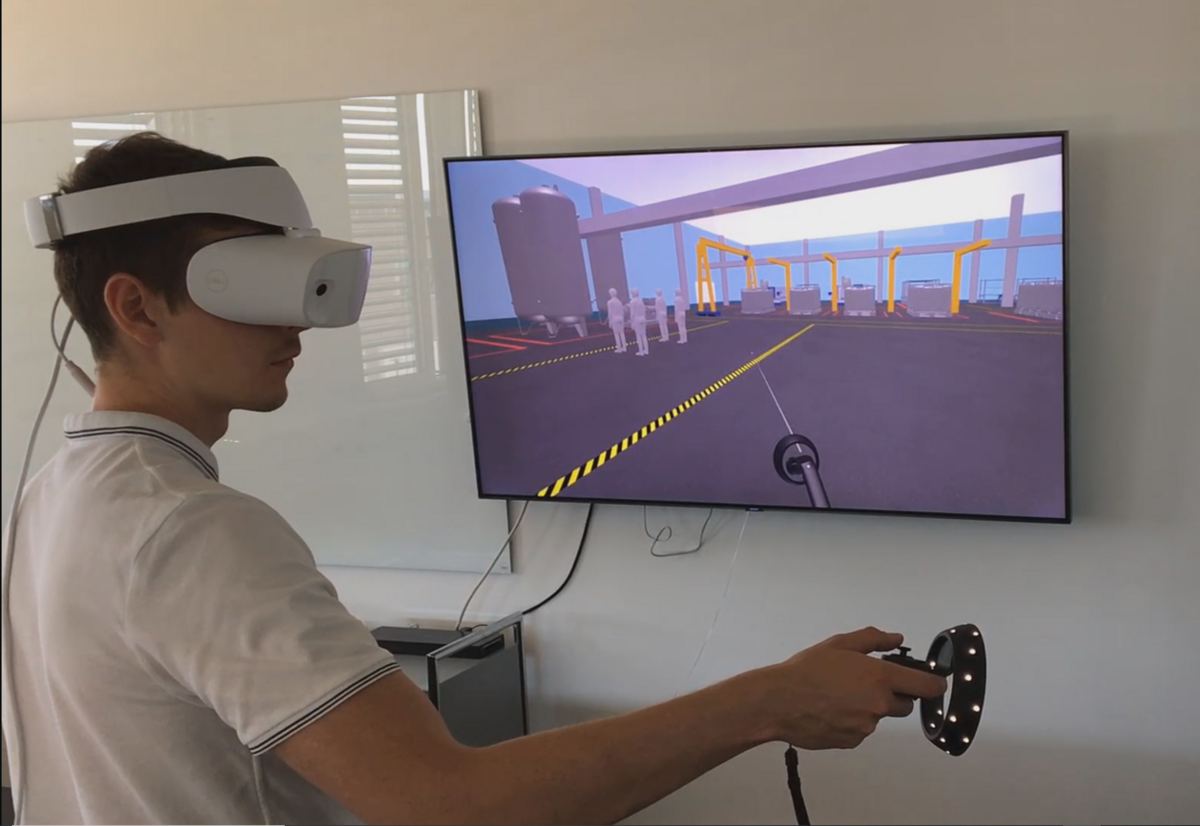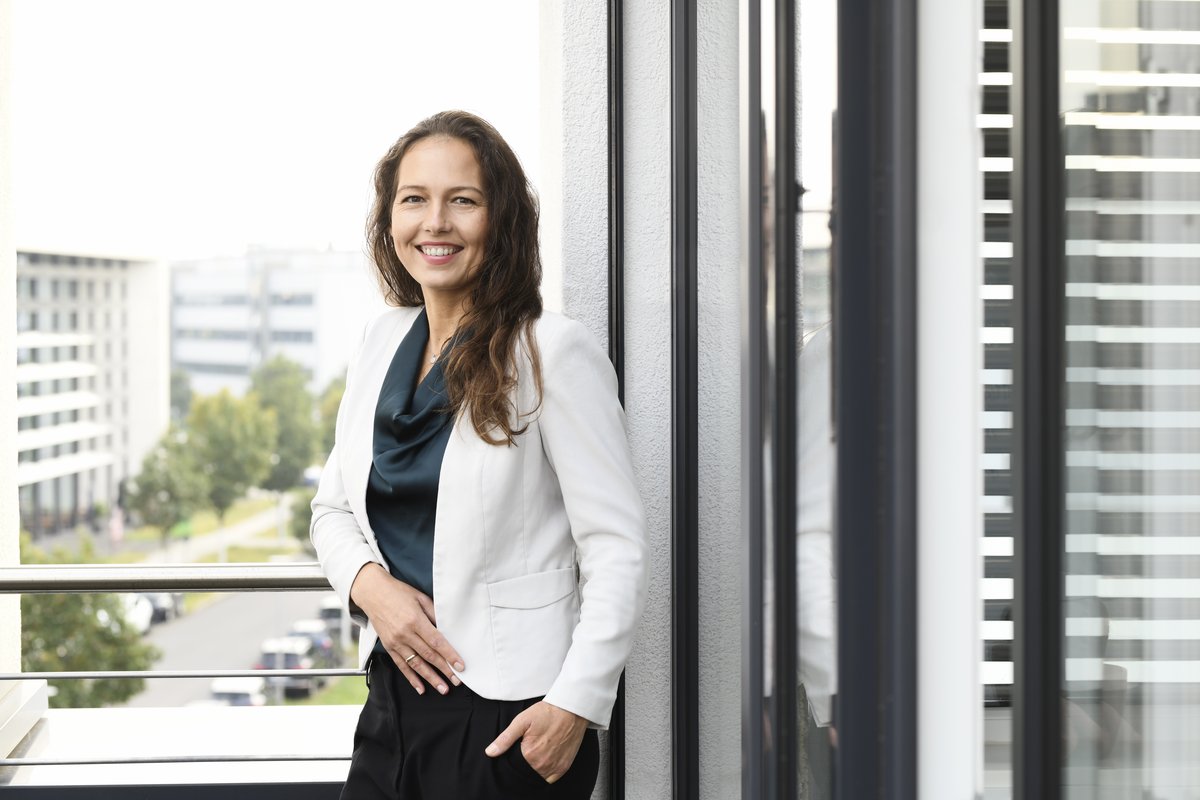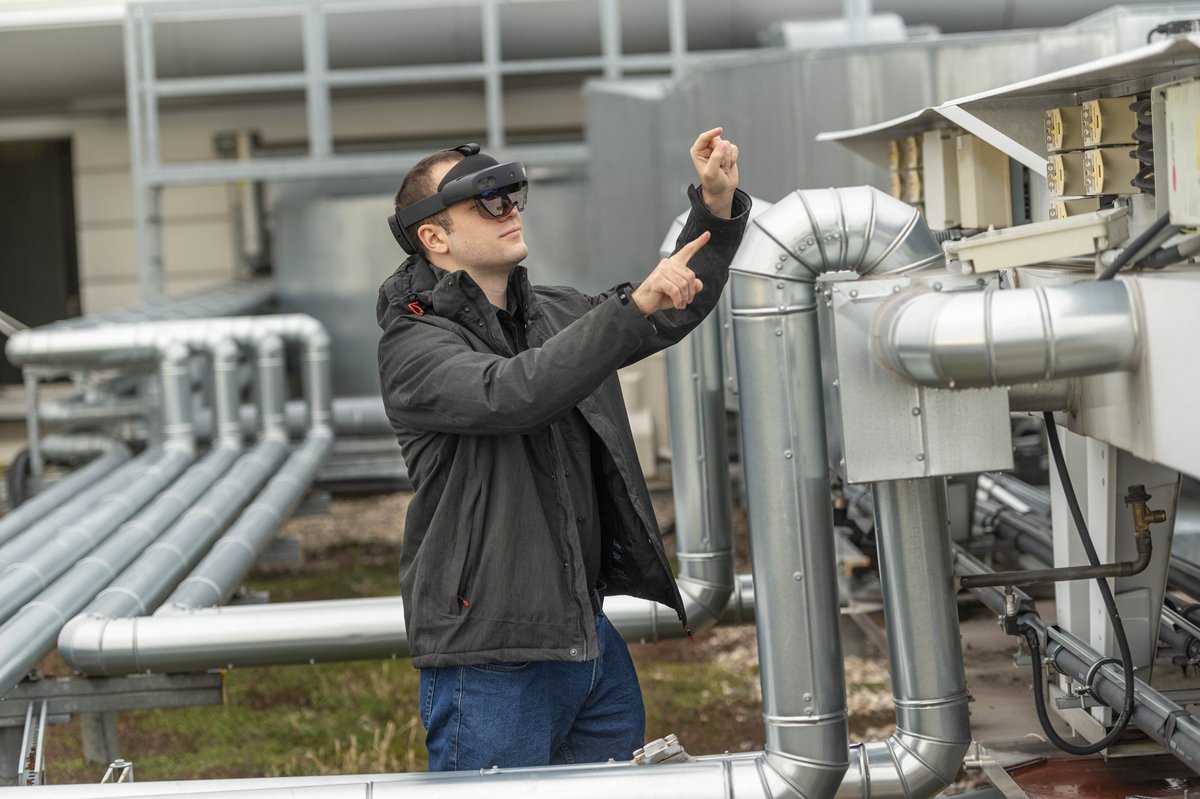A clear view of the future of the regional economy
Jenny Orantek sees the future ahead of her. She is certain that companies in Brandenburg will be able to use smart glasses and virtual reality to achieve enormous competitive advantages in just a few years' time, as well as attract and quickly train young talent. Three years ago, the Brandenburg native launched the "Mixed Reality for Business" (MR4B) alliance, which is funded by the Federal Ministry of Education and Research as part of the "WIR! - Wandel durch Innovation in der Region" program. Together with her team from the software company X-Visual Technologies in Berlin-Adlershof, she has set herself the goal of driving structural change in Berlin and Brandenburg using mixed reality (MR) applications, i.e. the simulation of virtual worlds (virtual reality - VR) as well as the expansion of the real world with virtual elements (augmented reality - AR) and artificial intelligence (AI).
"Small and medium-sized industrial companies and industry-related trades in the Berlin and Brandenburg region want to develop new business models and position themselves for the future in the best possible way. However, it is often unclear who they can turn to," says Jenny Orantek, who coordinates the alliance and works closely with Prof. Wolfram Berger's chair at BTU to develop strategies. "Our alliance is a strong partner for them. We are creating a regional network in which software specialists, science and regional companies work together to develop technological solutions that are tailored to the needs and challenges of companies." The alliance facilitates the direct exchange of specialist knowledge and practical experience, which enables the development of application-oriented and effective MR applications. This will create a competence center for industrial mixed reality applications and AI in the region. "We want to encourage companies in our region to approach us with their needs and visions," says Jenny Orantek. "We then work together with our partners to turn them into reality."
And what exactly will the industry of tomorrow look like? Virtual reality and augmented reality in conjunction with artificial intelligence will play a key role in the development of future working environments. The technologies help specialists to shorten time-consuming and costly planning processes, work from any location and receive support and all the necessary information quickly and easily without having to interrupt their work. In addition to tablets and smartphones, data glasses are used to support staff members in the areas of plant planning, assembly, commissioning and maintenance as well as training.
Regional companies no longer need to constantly send their skilled workers on long business trips or journeys to job sites. In addition, they can attract junior staff by offering interesting training based on the use of state-of-the-art technologies. Even experienced Staff Members can familiarize themselves with new annexes very easily and quickly by receiving instructions and information via data glasses without having to put down their tools. The technological developments for this are rapid. "Data glasses are becoming lighter and more comfortable to wear. And there are now very powerful models available for just a few hundred euros," says Jenny Orantek happily. Companies are increasingly approaching the alliance. Six projects are currently being implemented in which technological solutions are jointly developed and then used as prototypes by the companies. New projects are constantly being added. The last call for project ideas has just taken place and the next one will start in early summer 2024.
MR4B - an alliance with potential for the regional economy
In addition to TU Berlin and HTW Berlin, BTU Cottbus-Senftenberg is a key participant in the project. It brings the Lusatia region into play. Economics, in particular Macroeconomics, under the direction of Prof. Wolfram Berger, is working together with X-Visual Technologies to develop the alliance's strategy. The chair's focus is on market and industry analysis as well as identifying drivers and barriers for the application of VR/AR technologies and determining their potential in the industrial environment. Marius Nagel is a research associate in the project and has lived in Senftenberg for a long time. He has been involved in the alliance since its beginnings: "We know the region and Lusatia in particular very well and are aware of the major challenges facing our economy. In addition to the energy and courage to break new ground, what is needed above all is cooperation and the exchange of knowledge and expertise. That's what we're working on."
Interested companies or software developers are invited to register via the website https://mr4b.de to contact the alliance.



